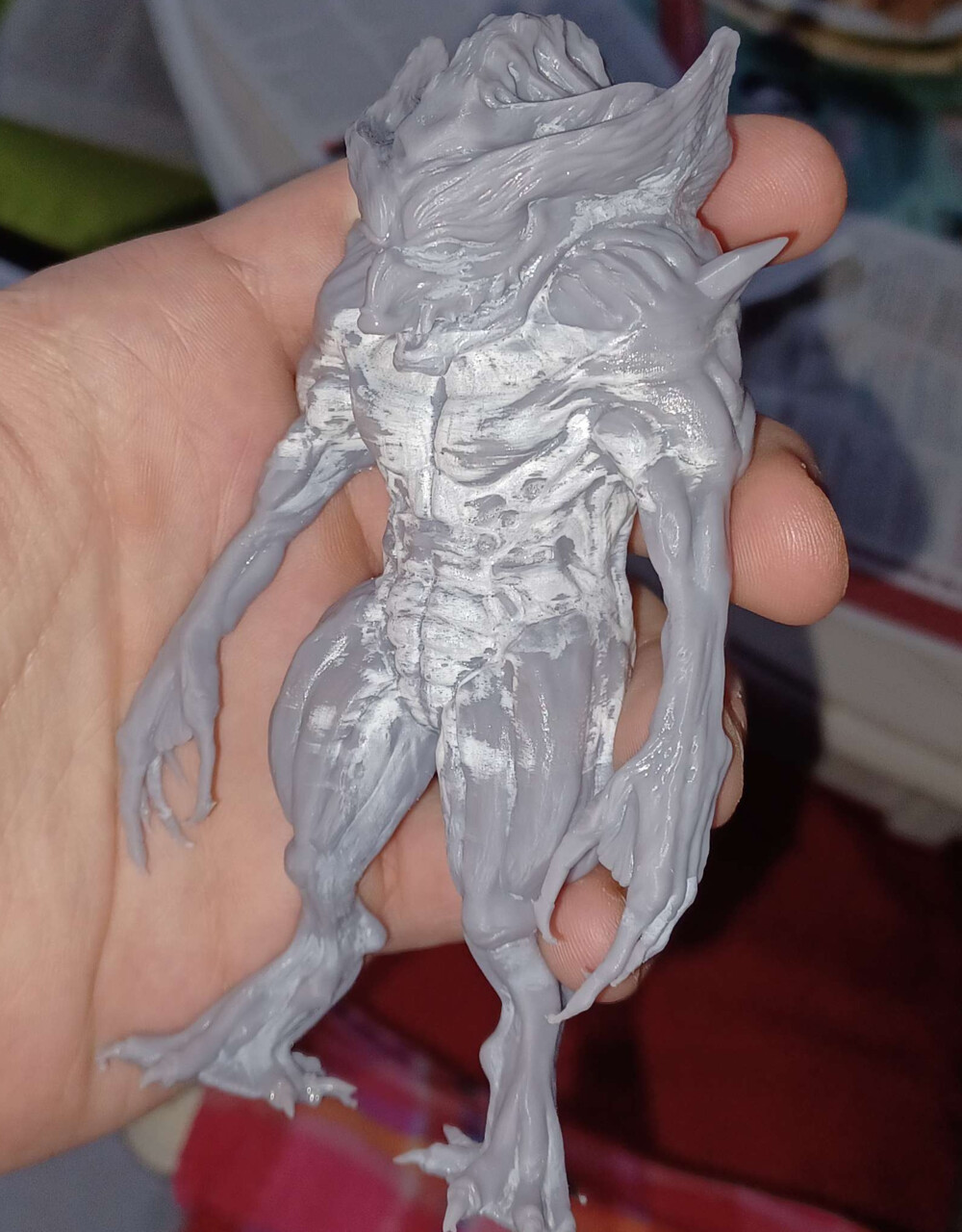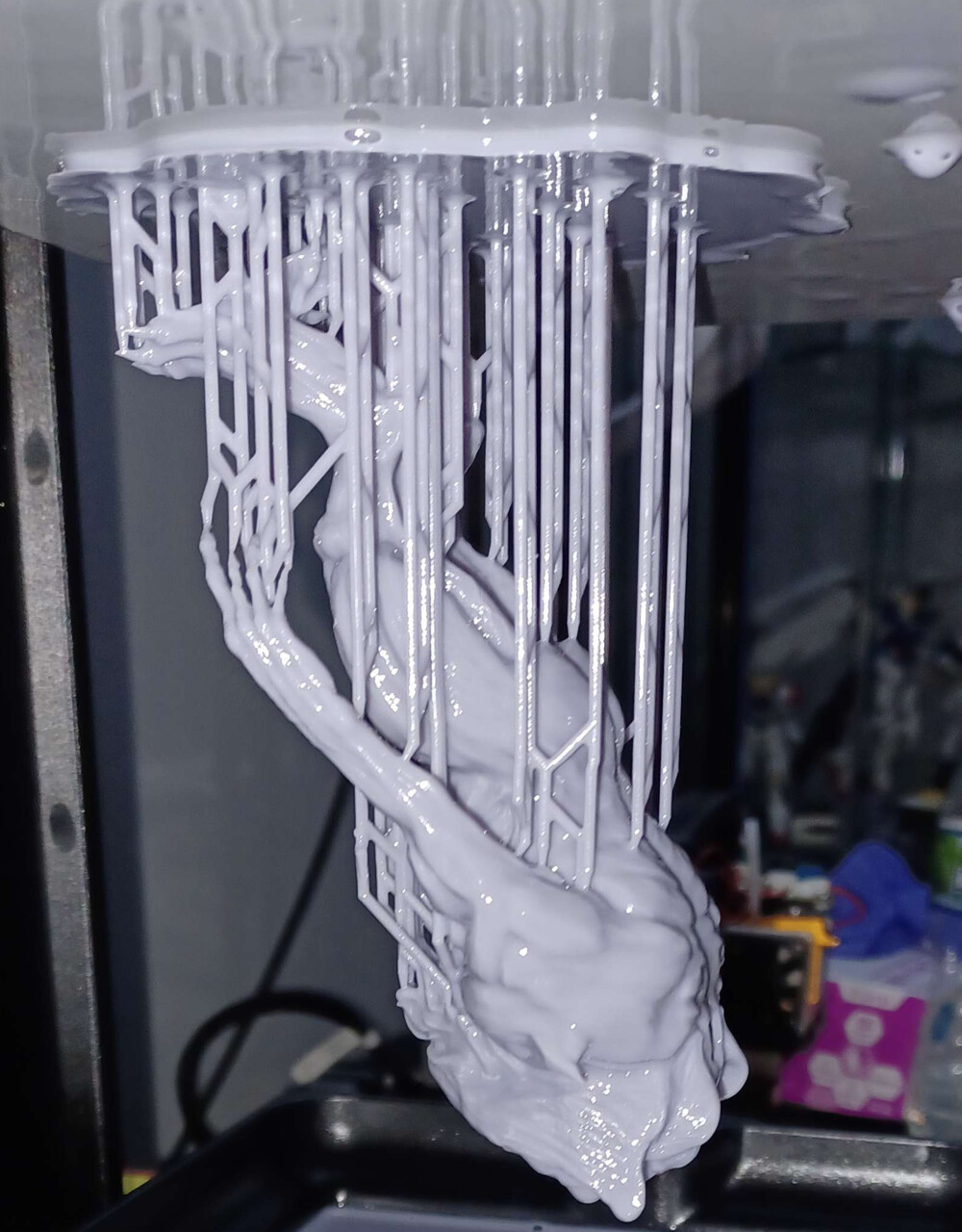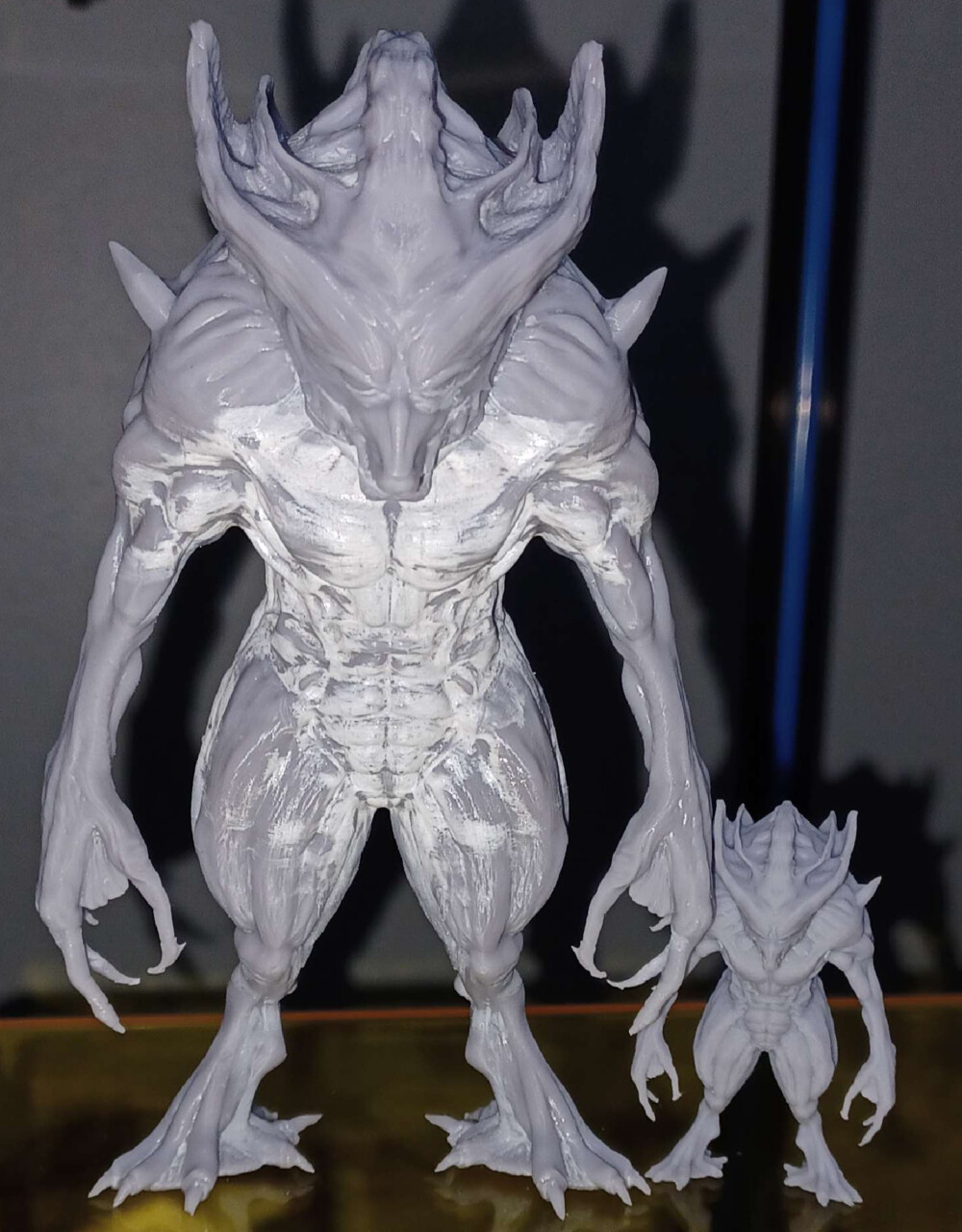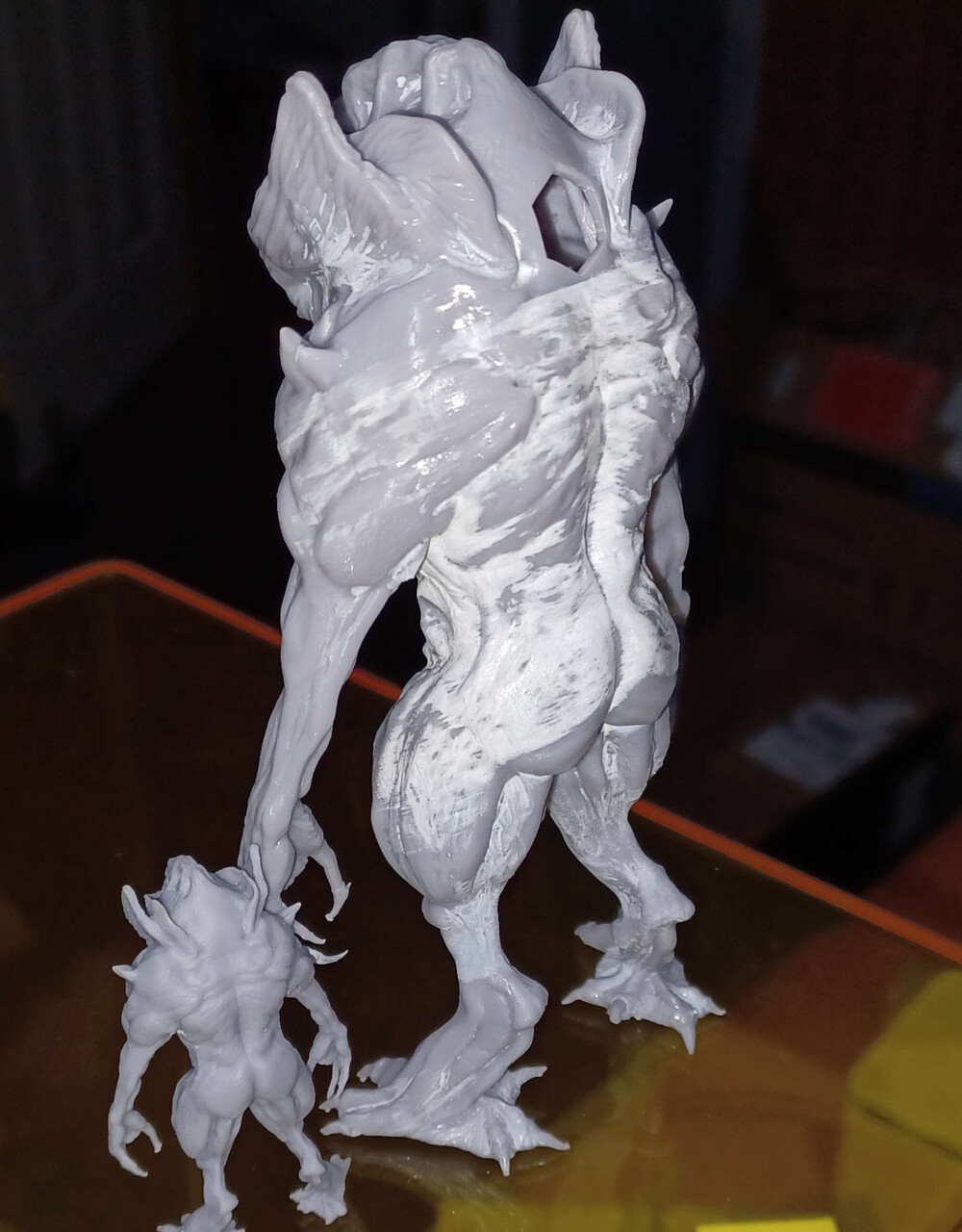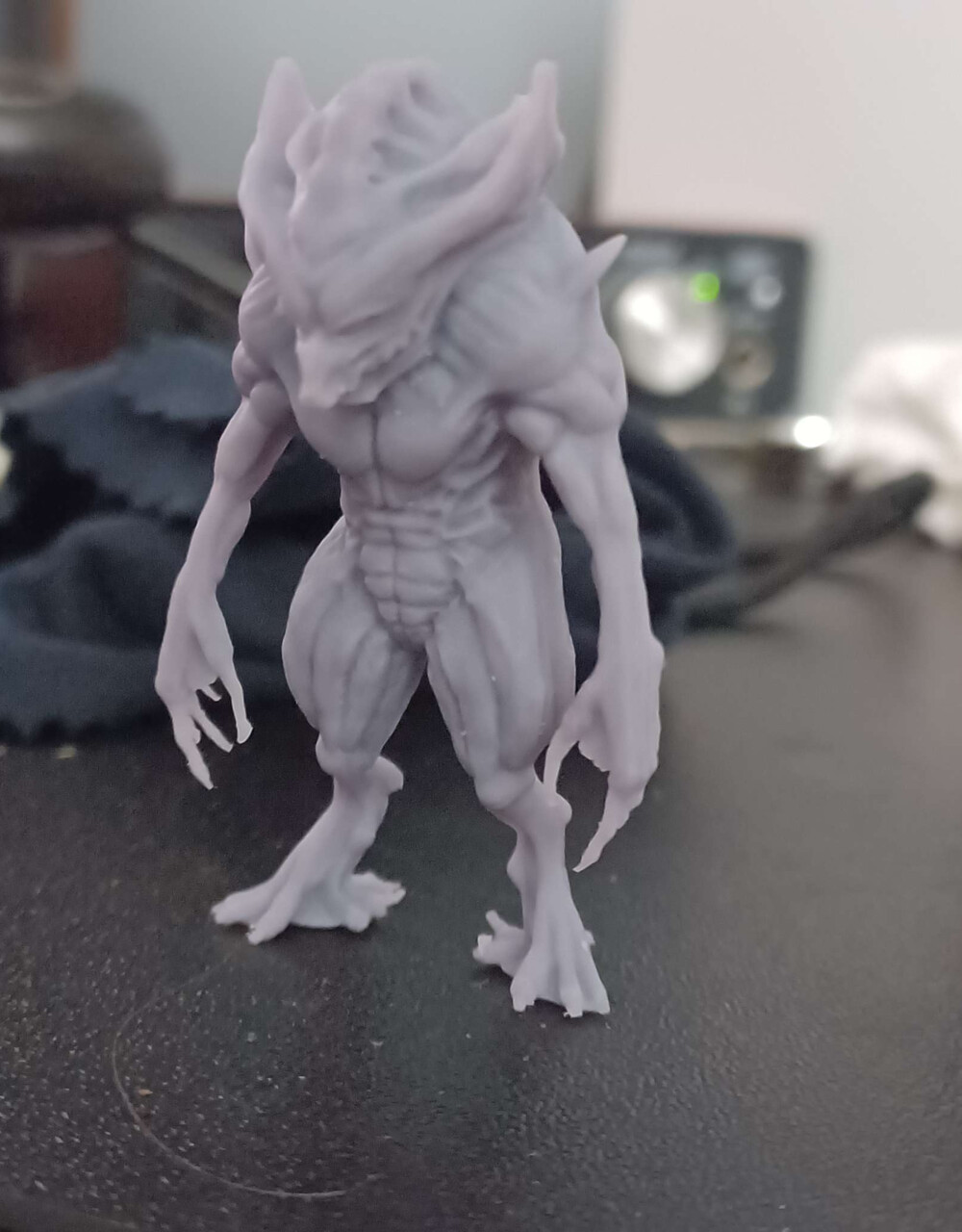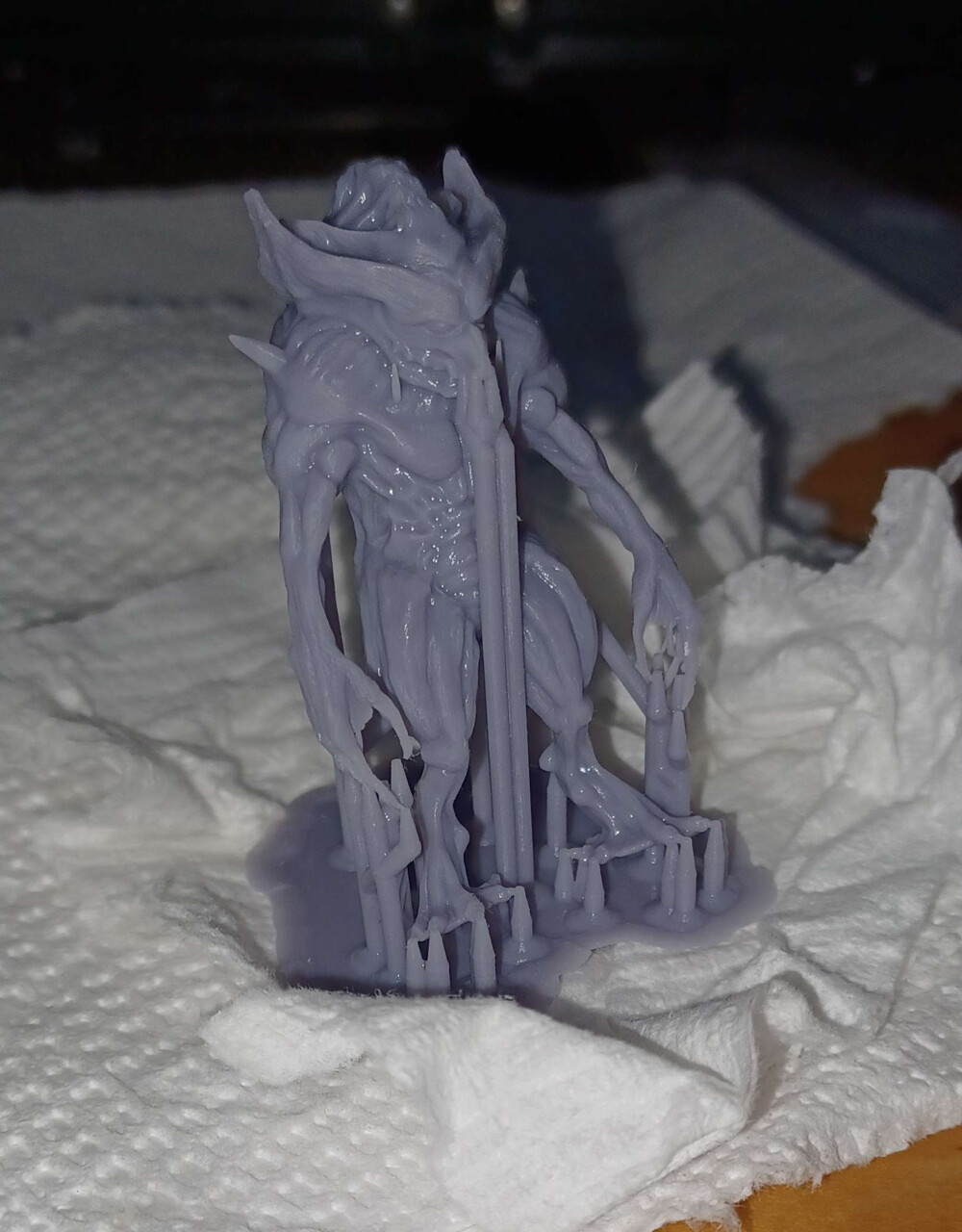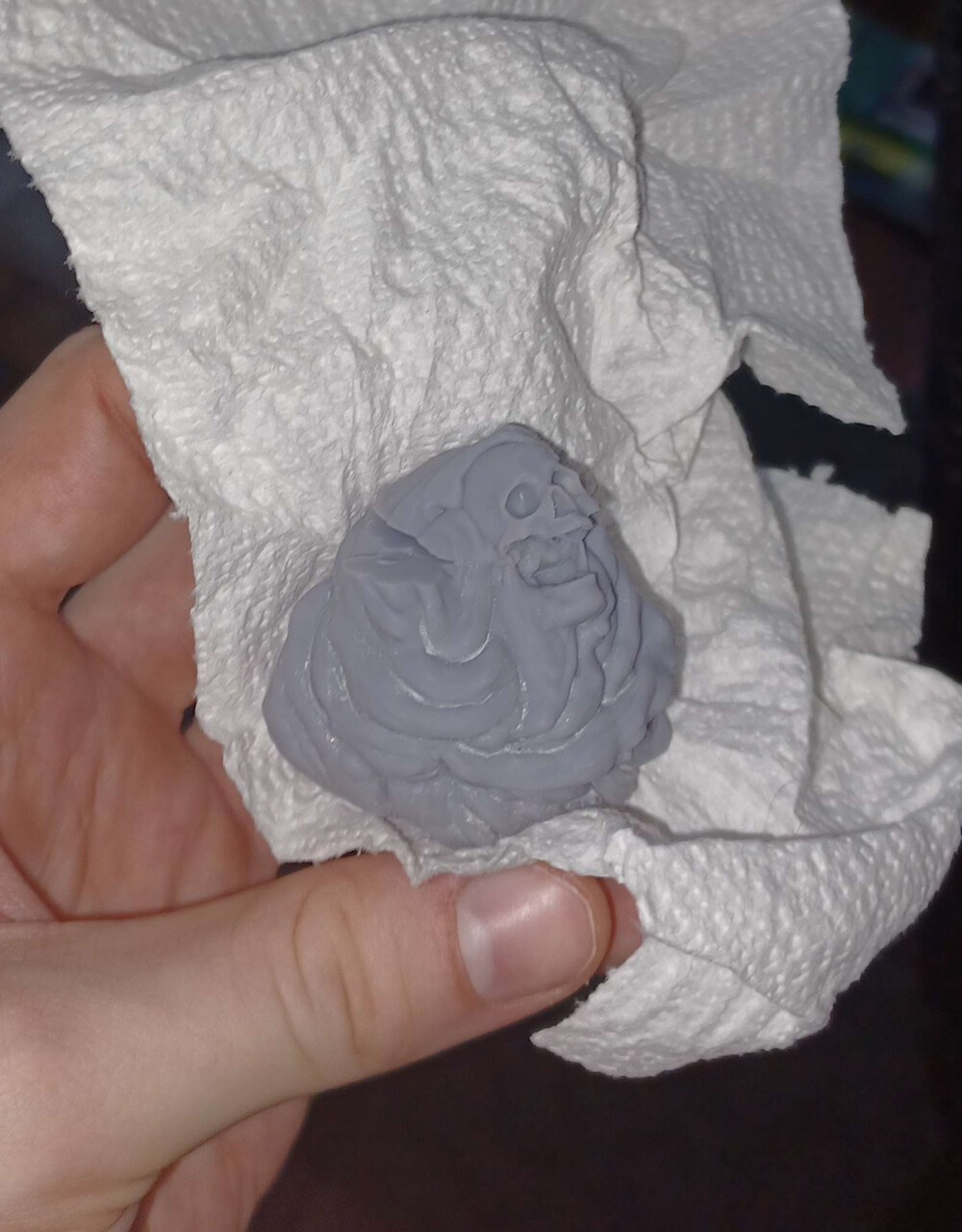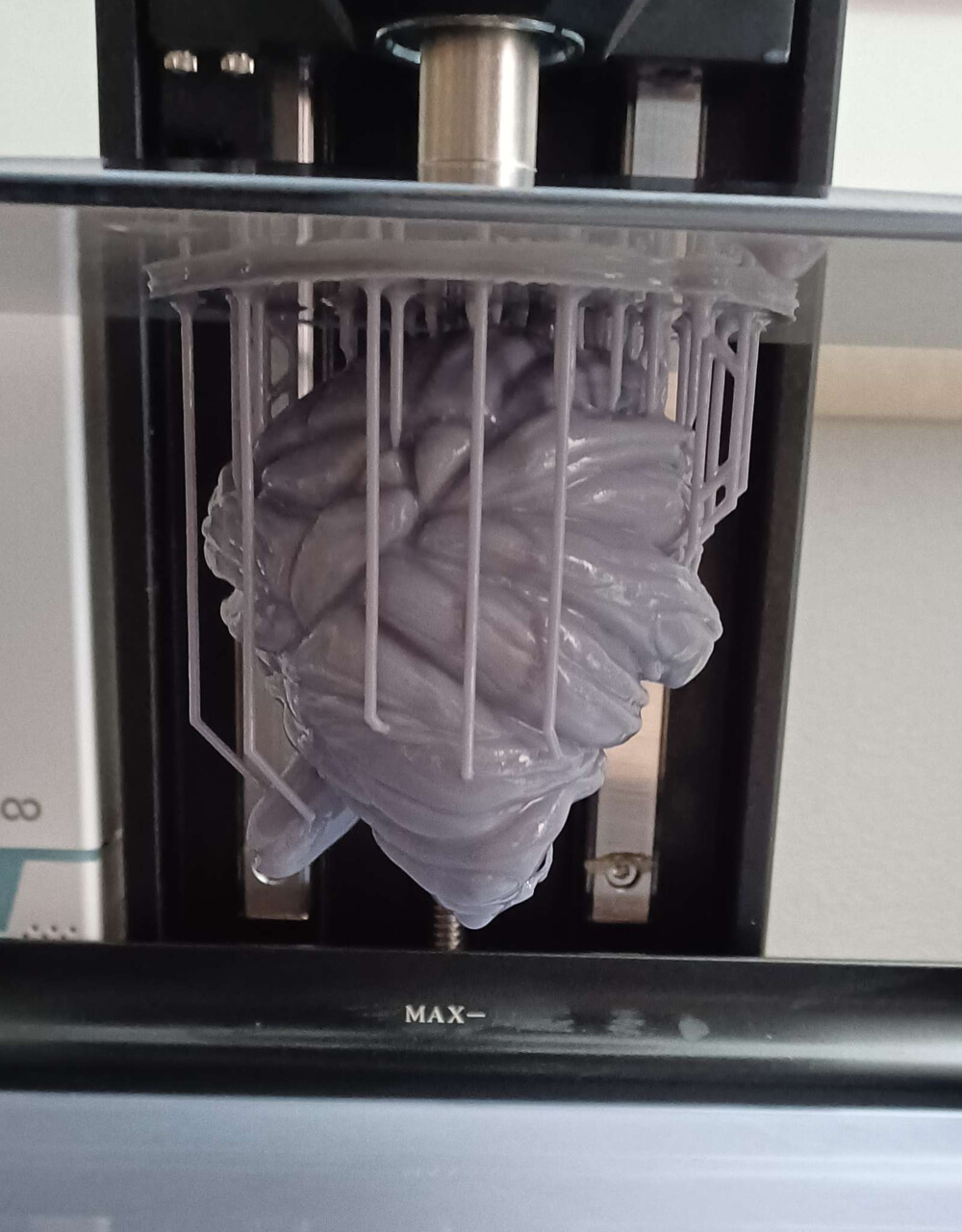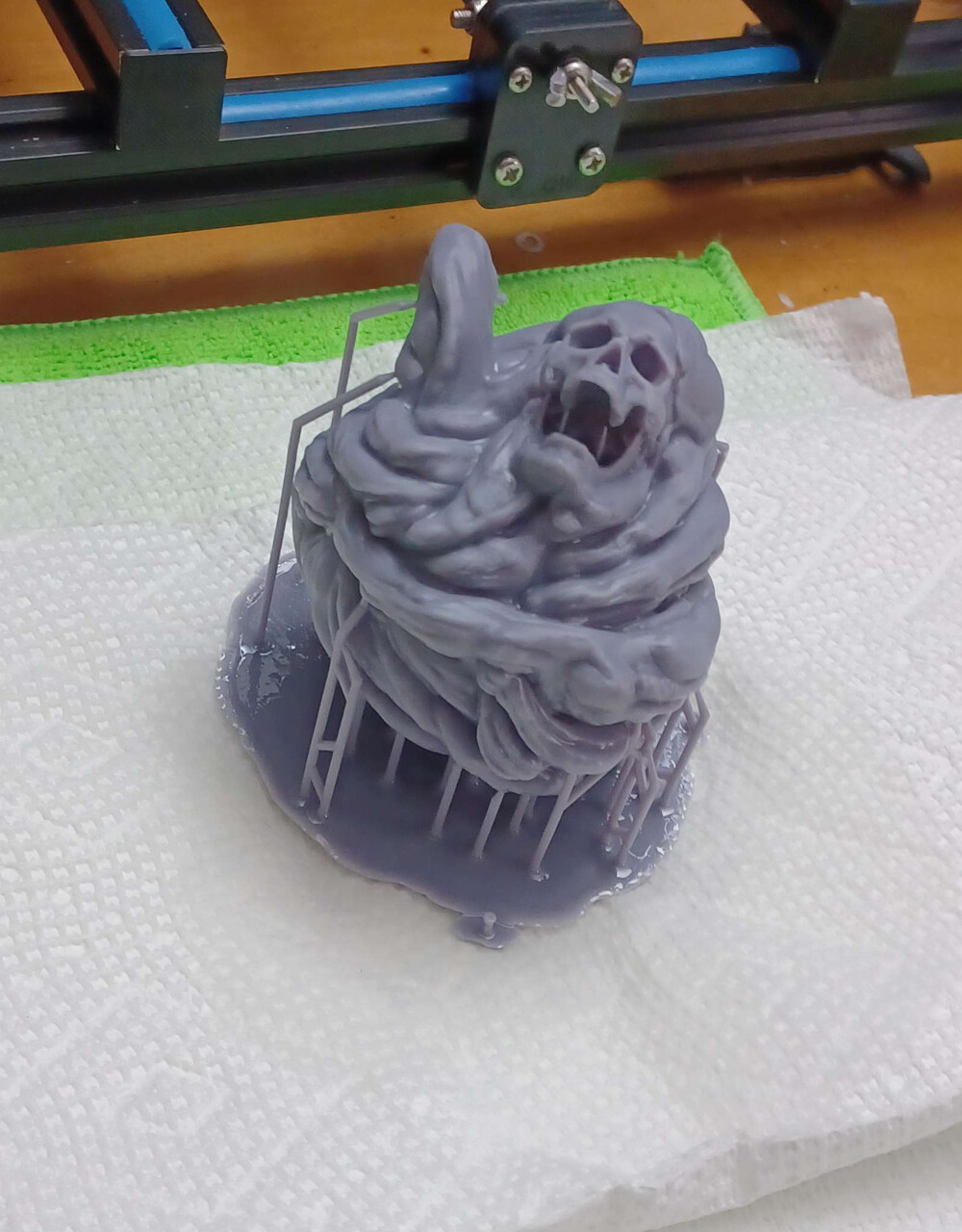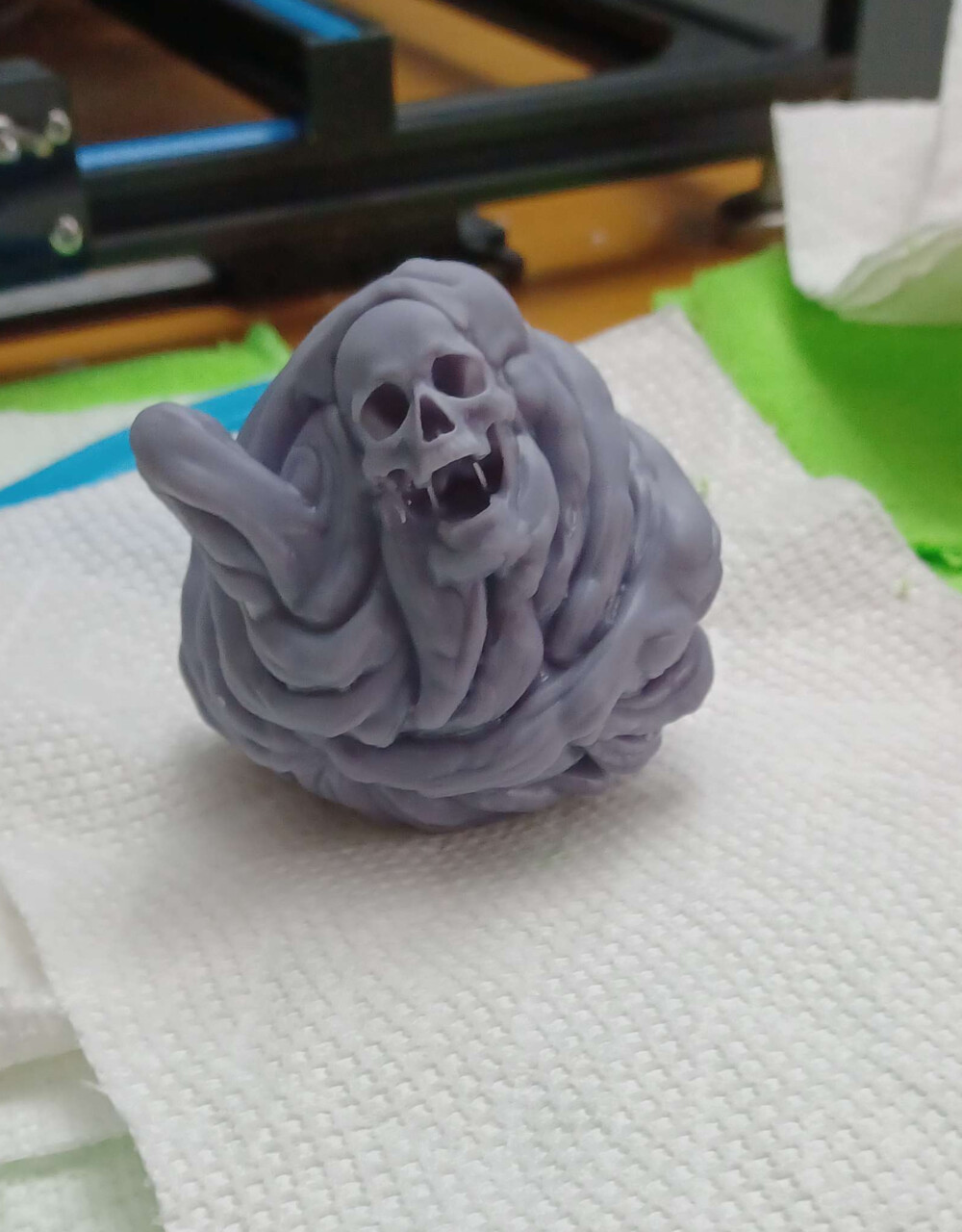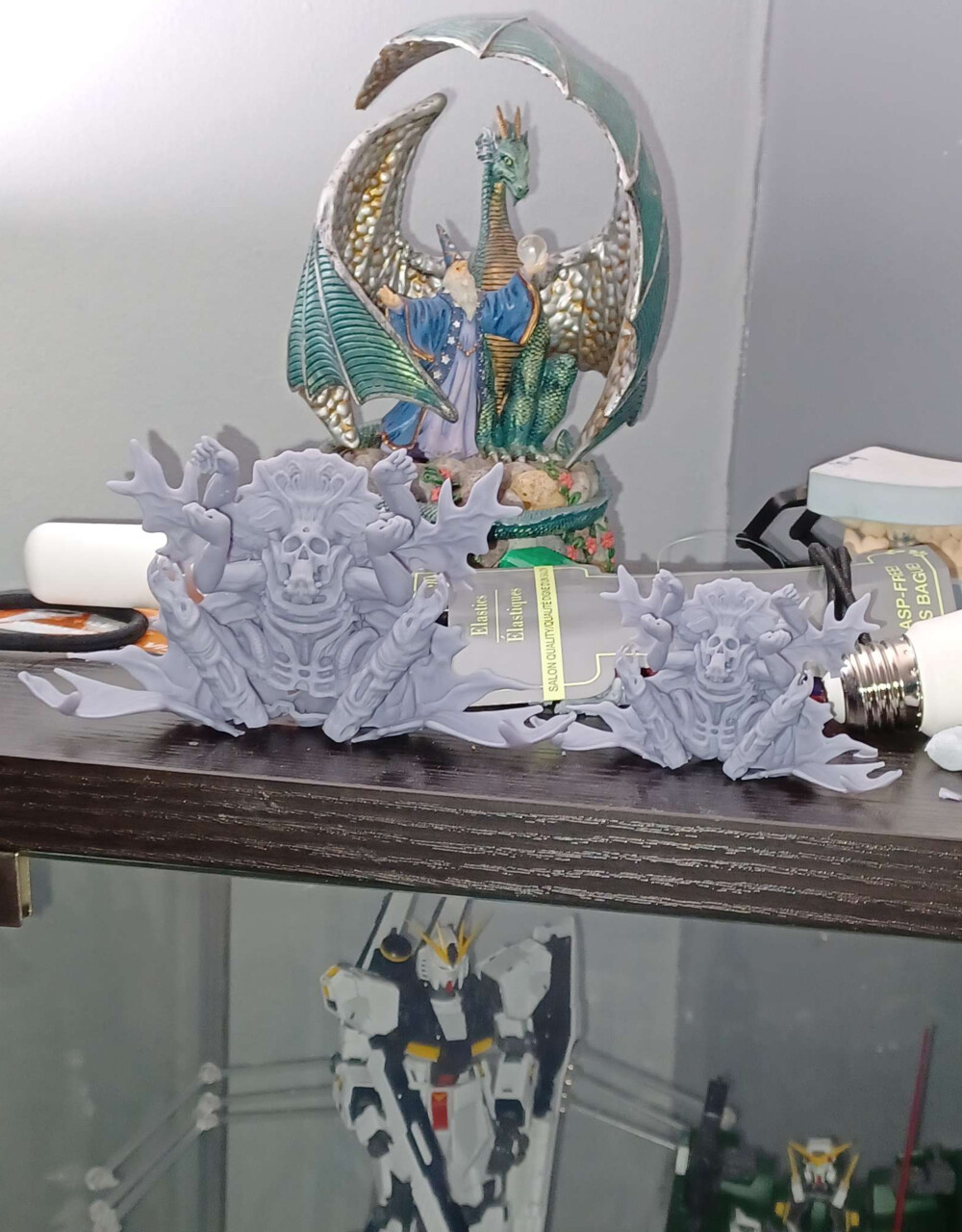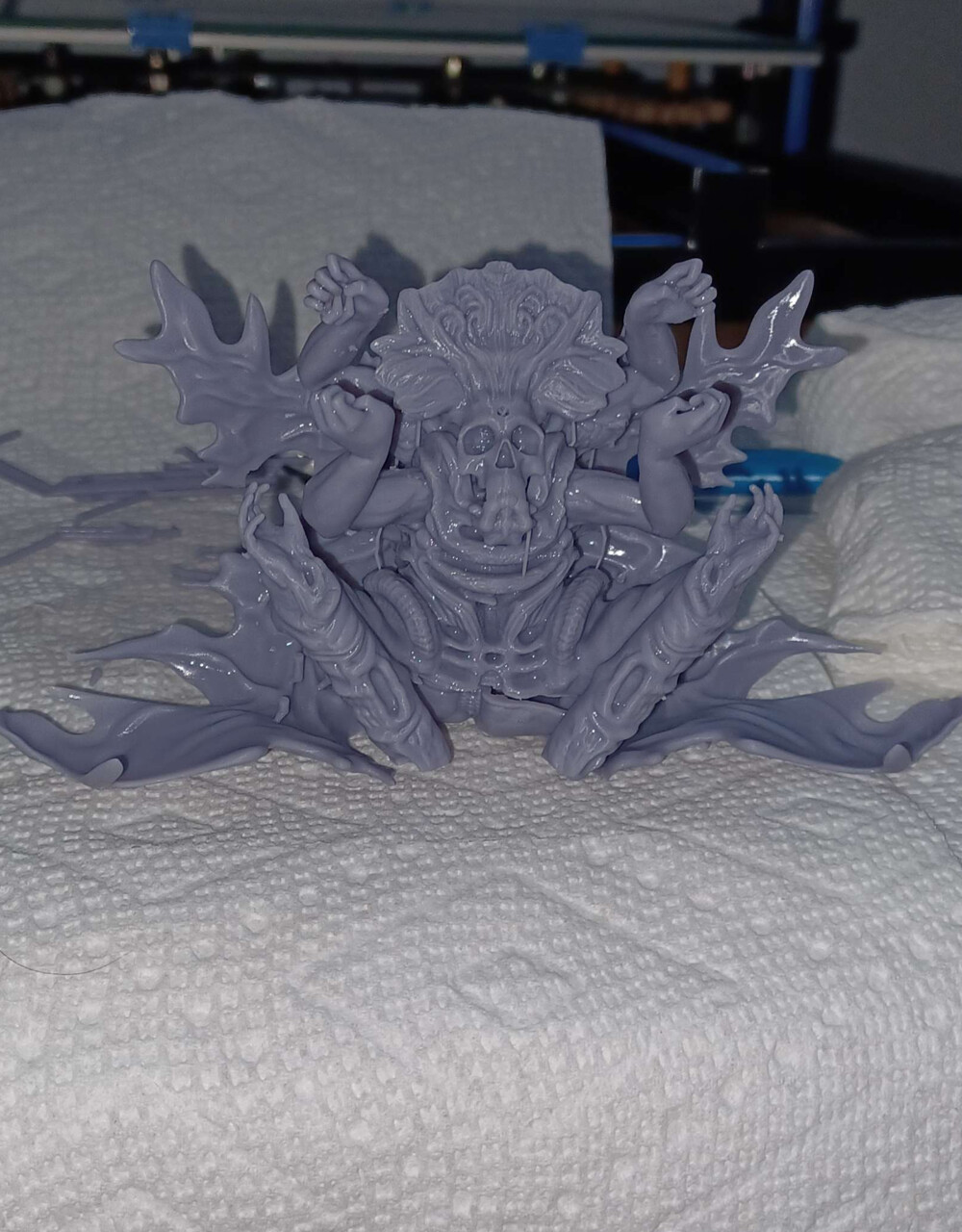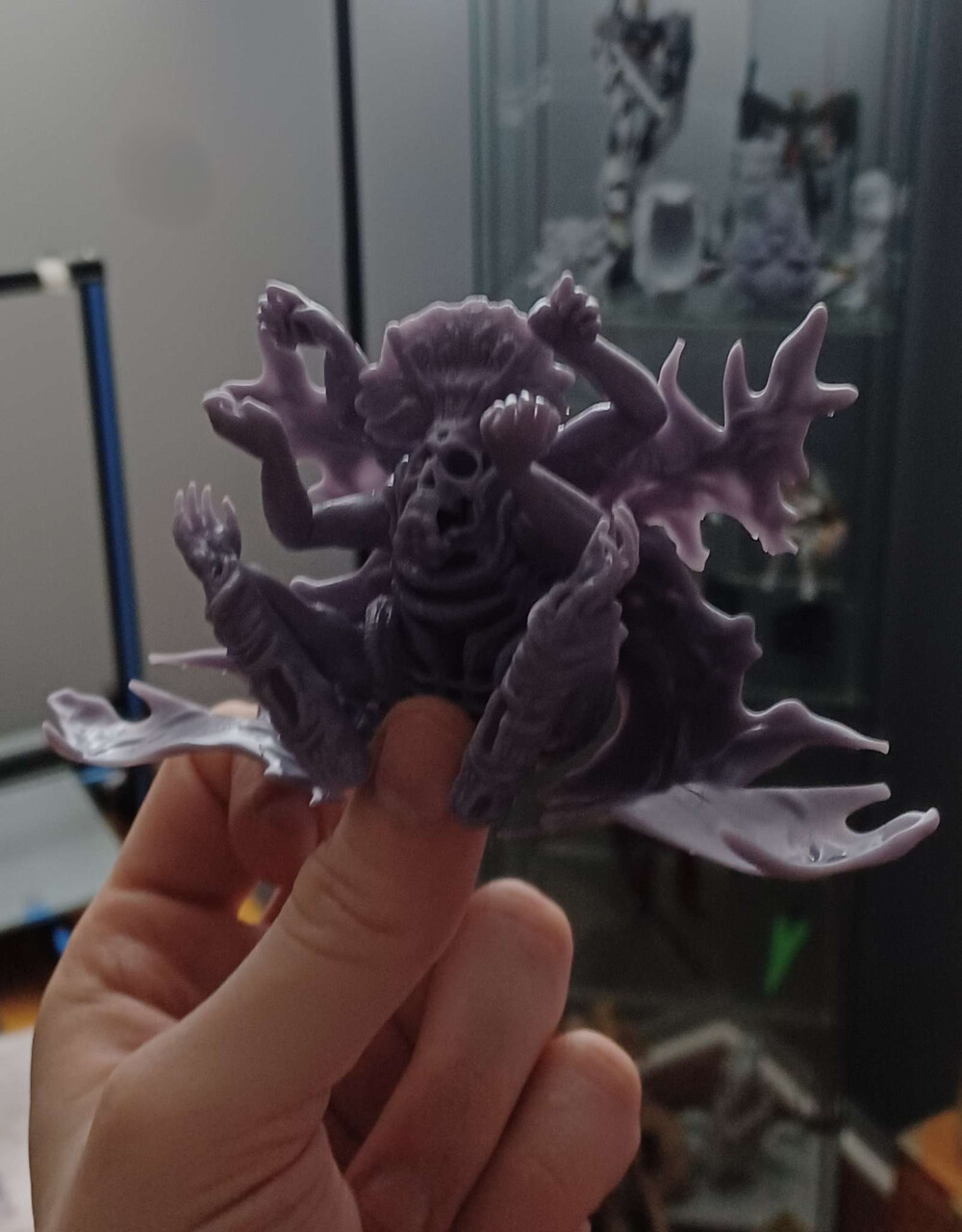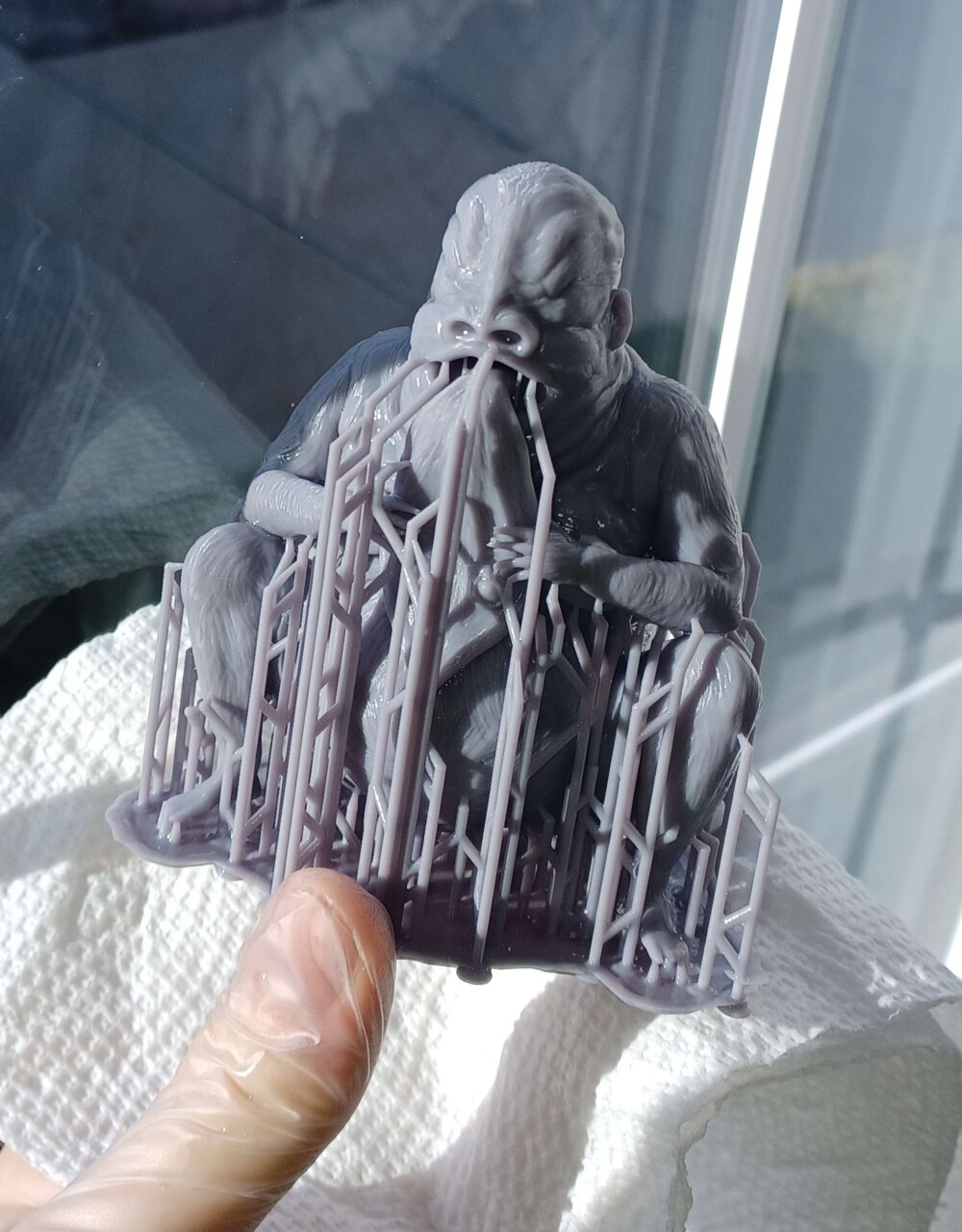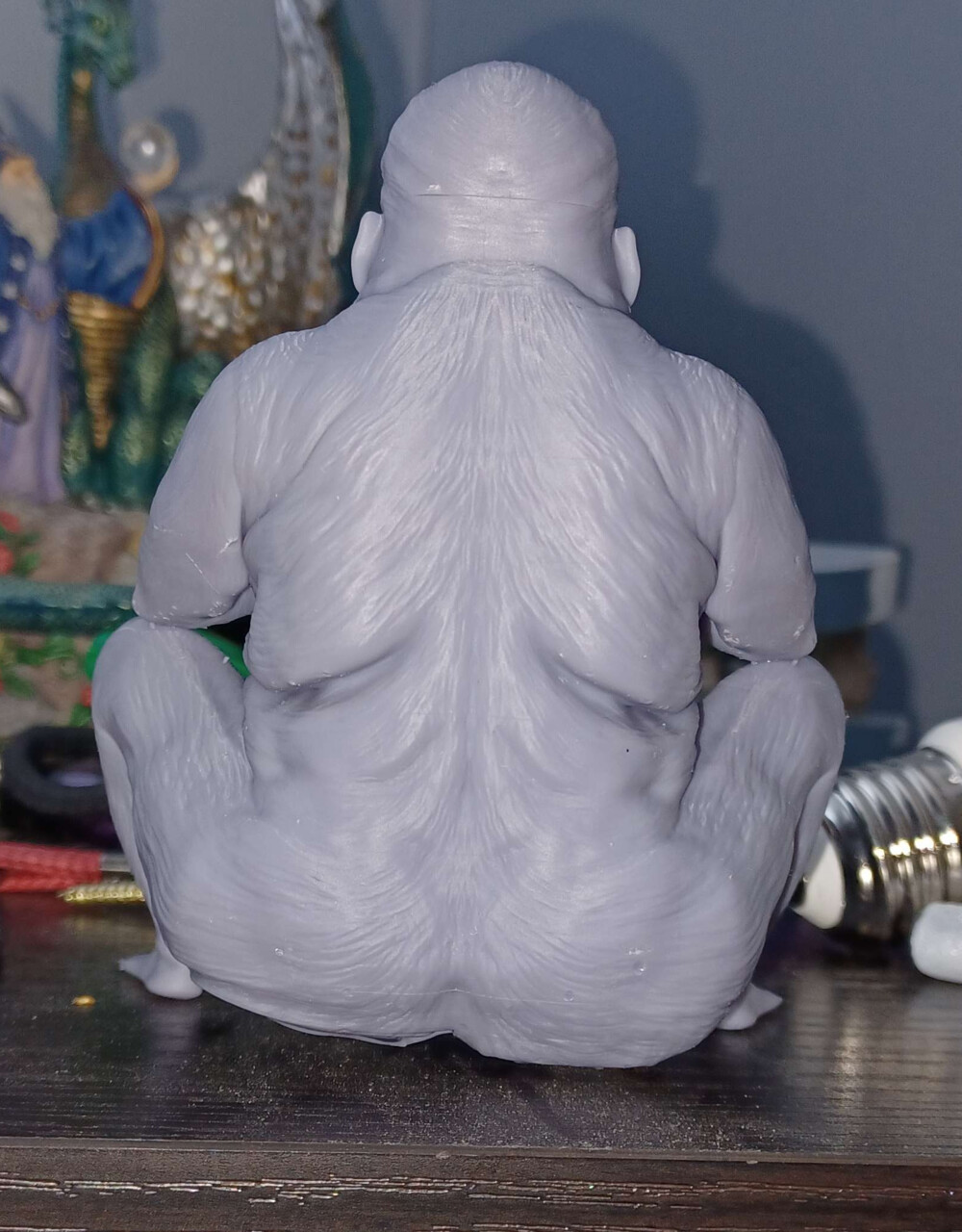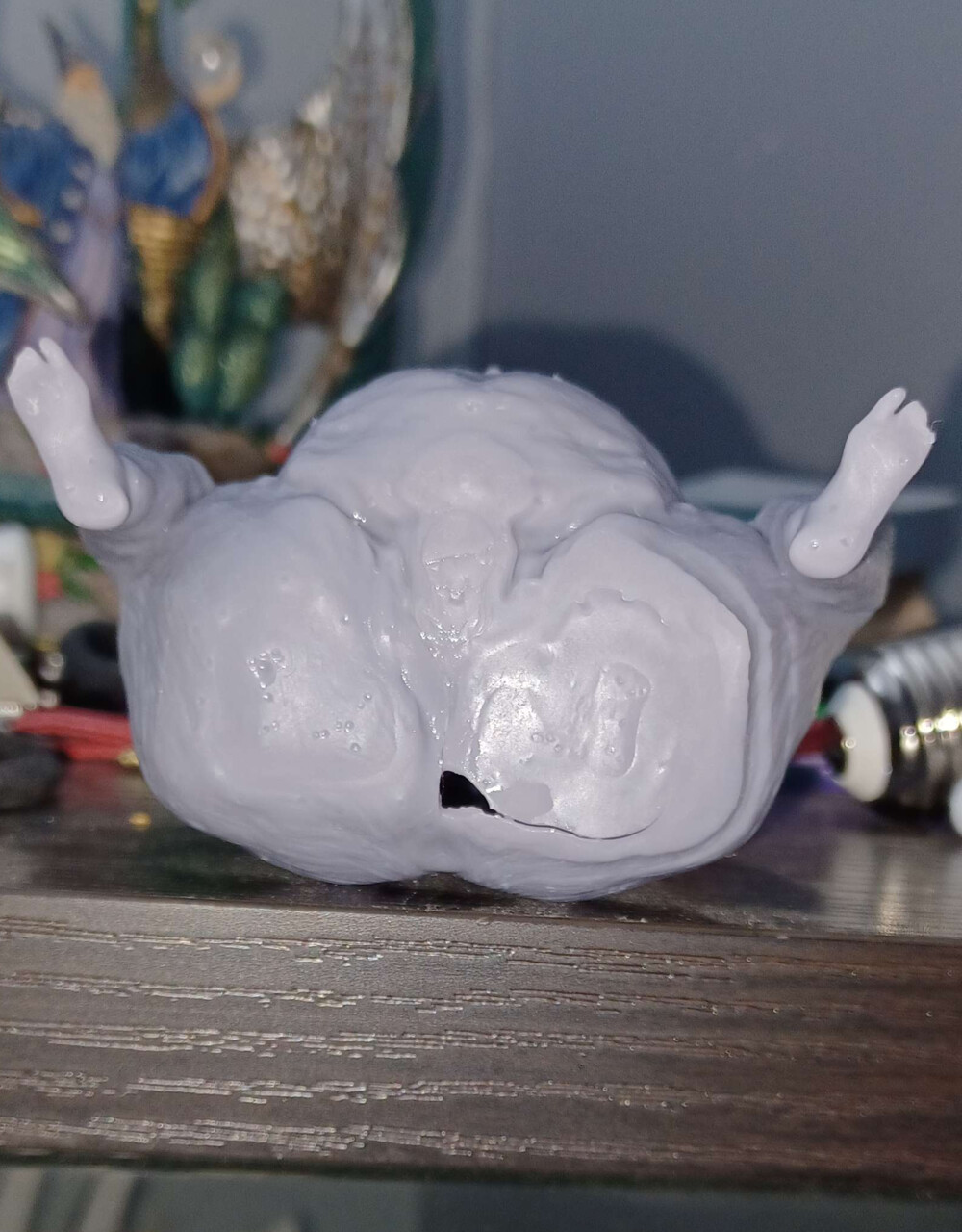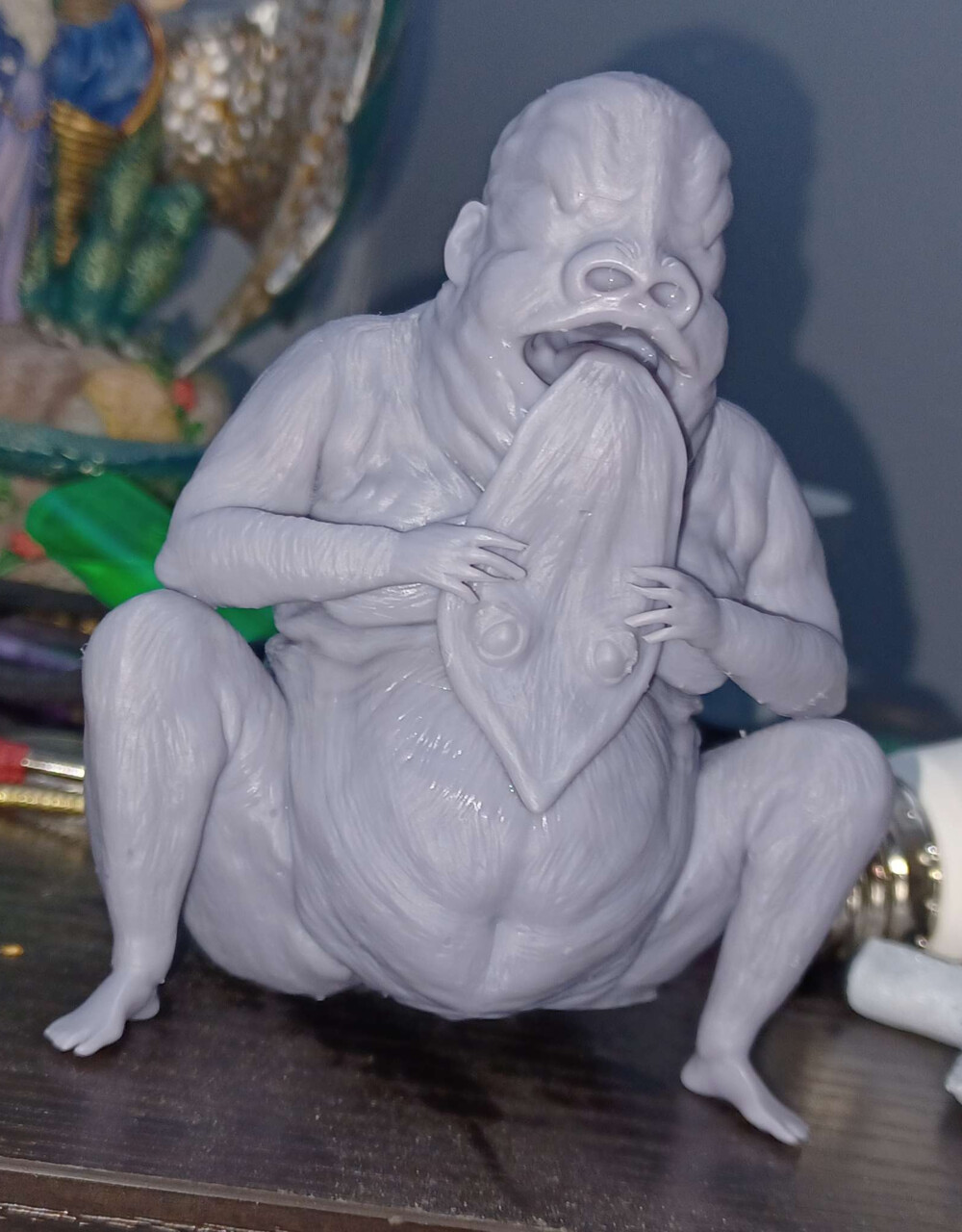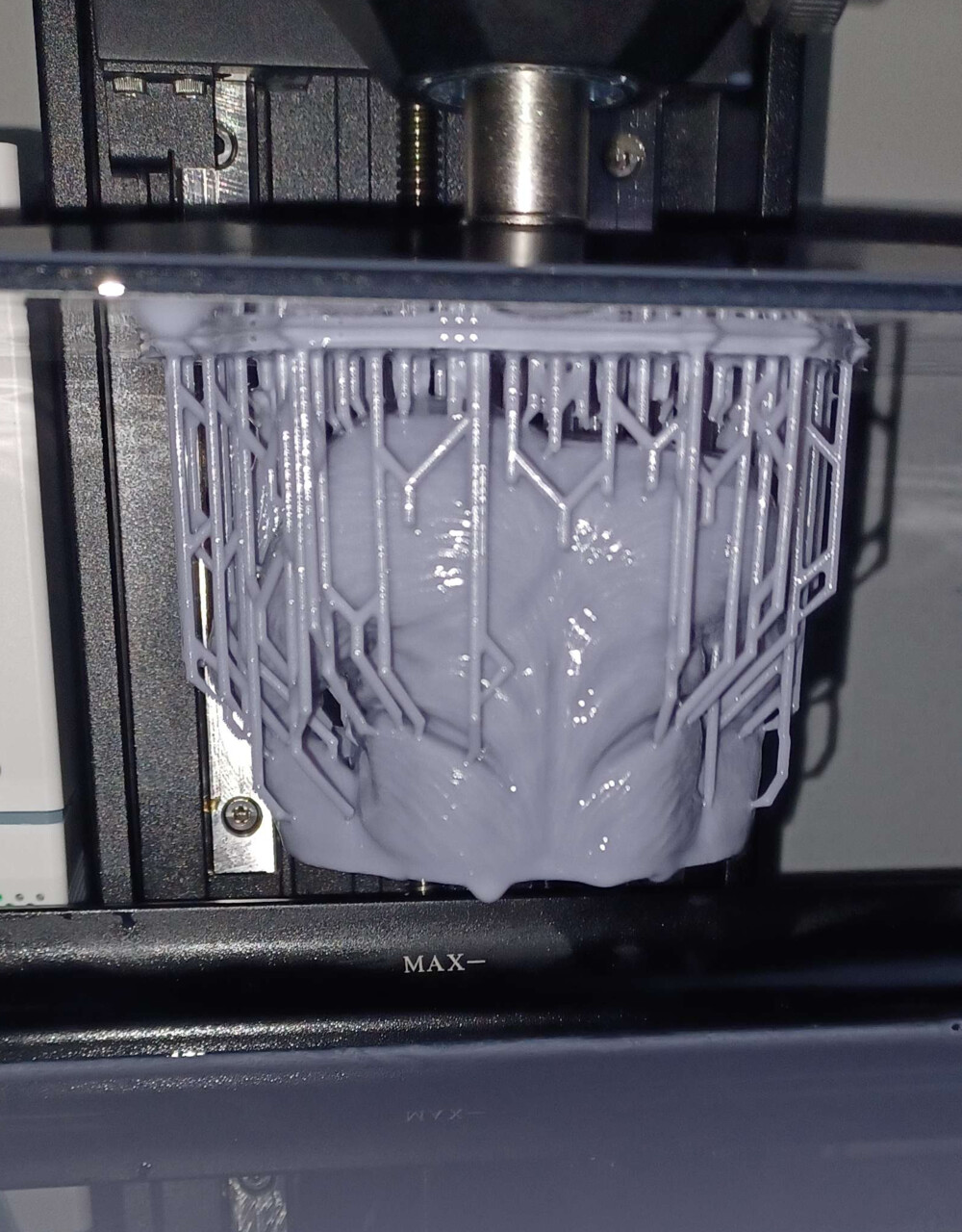N E K R I L I A
Day 4
The workers gather at the outpost as usual, but the camaraderie that normally accompanies the start of the day feels fractured. In the past, the crew would joke with one another, trading quips about the harsh weather or their evening escapades at the tavern. This morning, however, a heavy silence hangs over the room, broken only by the occasional scrape of chairs or the clink of coffee mugs on the table. Wacian enters, scanning the room. His coworkers are there, but something feels off. Anders, who normally leads the group in loud, boisterous conversations, sits at the edge of the table, hunched over and muttering under his breath. His finger drags through the frost on the table's surface, sketching what appears to be a crude rune. The motion is repetitive, almost mechanical, and his face is blank, as though he isn’t entirely present.
"What's that you're drawing?" Wacian asks, trying to inject some normalcy into the moment.
Anders freezes, his finger hovering mid-drag. He looks up at Wacian, his eyes bloodshot and unfocused. "I... I don't know," he stammers, his voice cracking. Then, with sudden intensity, he snaps, "Why does it matter?" His outburst is so abrupt and out of character that the other miners glance over uneasily.
Magnus, usually the calm and pragmatic one, tries to diffuse the situation. "Take it easy, Anders," he says, though his tone lacks conviction. Magnus himself looks paler than usual, his hands fidgeting with his thermos. He avoids eye contact, his gaze flicking nervously toward the windows as if expecting something—or someone—outside.
Johan, a younger worker, chuckles nervously in an attempt to lighten the mood. "Must be the long nights getting to you, huh? Makes people see things that aren’t there." But his laugh dies quickly when Anders glares at him with an intensity that sends a shiver through the room.
In the past, the group’s conversations had been lighthearted, their banter helping them face the grueling work ahead. Now, the usual social bonds feel frayed, stretched thin by an undercurrent of something unspoken. Even the outpost itself seems to reflect the mood: the walls feel closer, the air heavier, and the usual creaks of the old structure seem louder and more intrusive. As Karl arrives and begins the briefing, Wacian can’t help but notice that several workers aren’t paying attention. Some stare blankly into their mugs, while others rub their temples as if fighting off a headache. One worker, Torvald, keeps glancing at his hand, tracing faint, glowing lines on his palm that no one else seems to see. Wacian shifts uncomfortably in his seat, his unease growing. Something intangible is pressing down on the group, and it’s not just the sinkhole or the harsh conditions. This tension is different—an almost primal discomfort, as though the air itself is saturated with a presence none of them can name. For the first time since arriving at the outpost, Wacian finds himself doubting the safety of their work. Whatever is happening here, it’s starting to take root not just in the mine, but in the people themselves.
As Karl’s voice drones on in the background, Wacian’s attention drifts to the faint hum of the room—a sound he isn’t sure is even real. It feels like the walls are subtly vibrating, though no one else seems to notice. He glances around, observing the other workers. Their faces are pale, drawn tight, and their movements feel disjointed, like puppets on frayed strings. He wonders if anyone else feels the same oppressive weight, the same gnawing unease that’s been building in him since the first descent into the sinkhole. And then it hits him—this isn’t just about the mine anymore. The odd behavior isn’t confined to the workers. He remembers the tavern last night: the elder’s cryptic warnings, and even the unsettling silence of the streets. It’s as though the entire town is caught in a web of tension, fraying at the edges with each passing day. Lost in thought, Wacian shifts in his seat, and a sharp, uncomfortable heat against his thigh jolts him. He frowns, patting his pocket and feeling the small, smooth shape of the rune stone he had picked up days earlier. He had completely forgotten about it. Now, though, it’s hot—uncomfortably so, as if it’s been lying near a fire. He pulls it out and stares at it, turning it over in his hand. The faint engravings on its surface seem brighter now, glowing faintly with an amber hue. A chill runs down his spine. It doesn’t make sense—rocks don’t just heat up. For a fleeting moment, Wacian wonders if he’s losing his grip, if the paranoia that’s gripped the others is starting to sink its claws into him. He clenches the stone tightly in his fist, ignoring the heat as it burns against his palm. Glancing around the room again, wondering if anyone else has noticed the oddities, the whispers at the edges of their perception. Or maybe they have noticed, and they’re just pretending everything is fine, hoping that by ignoring it, the growing unease will somehow go away. But he knows better. Whatever is happening isn’t going away. It’s spreading. And he’s starting to think that it’s not just the mine they need to worry about—it’s the town itself.
Abruptly, Wacian realizes he’s standing at the rig’s control box deep inside the sinkhole. The rune stone is clenched tightly in his hand, its faint warmth radiating into his palm. His thumb idly traces the intricate engravings on its surface, almost as if guided by an unseen force. The machine before him roars, its vibrations coursing through the metal platform beneath his boots. His brow furrows. He doesn’t remember walking over here. Worse, the rig was already running when he arrived. He looks at the controls—every dial, every lever is perfectly calibrated, the rig humming at optimal capacity. Yet, something about its rhythm feels off, too precise, too alive.His attention is drawn back to the rune stone, its faint glow casting shifting shadows on the control panel. He hesitates, unsure why, but then finds himself scanning the stone over the rig’s surface, as though compelled by some deep instinct. The moment the stone hovers above the primary drilling console, the entire machine lurches violently. The drill below them shifts into overdrive, its grinding roar echoing through the cavern like a beast unleashed. Sparks erupt from the drill head, illuminating the dark walls of the sinkhole with flashes of red and orange. Wacian stumbles back, gripping the control panel for balance as the platform beneath him vibrates wildly. He looks at the rune stone, now blazing hot in his hand, the glow so bright it sears his vision. It feels as though the stone is reacting to the rig—or perhaps the other way around. The drilling grows faster, more erratic, the sound climbing to an almost unbearable pitch.
“What the—?” he mutters, his voice swallowed by the cacophony.
Over the comms, a static-laden voice cuts through the chaos. “Wacian! What the hell is going on down there?” It’s Karl, his tone sharp and accusatory.
Wacian fumbles to respond, pressing the comm button on his collar. “I-I don’t know! The rig—it’s gone haywire!”
“Shut it down! Now!” Karl barks, his voice crackling with urgency.
Wacian’s hands fly to the controls, but the machine resists him. Every attempt to power it down is met with a mechanical whine, the rig refusing to obey. He glances up at the ceiling of the sinkhole, half-expecting Karl to activate the remote override. But nothing happens.
“Why isn’t the override working?” Wacian shouts into the comm.
“It is working!” Karl snaps. “Something’s interfering—get out of there before it blows!”
Hesitating, his eyes darting between the rig and the stone in his hand. The glowing engravings seem to pulse in sync with the rig’s movements, as though feeding into the machine’s frenzy. A thought flickers in his mind, unbidden and chilling: It’s the stone. It’s amplifying the drill. The ground beneath the platform trembles, small fissures snaking outward from the base of the rig. Dust and loose rocks cascade from the walls, the cavern groaning like a living thing. Wacian backs away from the control box, his breath coming in shallow bursts as the rune stone in his hand burns hot enough to sear his skin. Suddenly, a low, wet sound cuts through the chaos—a squelching, like flesh dragging over metal. Wacian freezes, his eyes snapping back to the rig’s control box. Tendrils, dark and glistening with a fungal sheen of embers burning out, are snaking out from the seams of the machine. They writhe and twitch, their movement unnervingly deliberate. Before Wacian can react, the tendrils lash out, wrapping around his wrist and yanking his hand toward the control panel. He cries out, the rune stone slipping from his grasp. The fungal appendages seize it midair, their slick surfaces pulsating as they envelop the glowing artifact. The heat in the air dissipates instantly. The trembling stops. The rig’s roaring overdrive fades into a steady, familiar hum, as though nothing had happened. The fungal tendrils retreat back into the machine, leaving no trace of their intrusion. Wacian stumbles back, clutching his wrist and staring at the now-quiet control box. The rune stone is gone, consumed by the rig—or whatever had taken hold of it.
“Wacian, what’s going on down there?” Karl’s voice crackles over the comm, irritated but unconcerned. “You’ve got the whole system stalling up here.”
Wacian fumbles for the comm button, his voice shaky. “I... I don’t know. It... it’s fine now.”
“Just a hiccup?” the foreman asks, his tone already dismissive.
“Yeah,” Wacian mutters, his eyes still fixed on the control box. “Just a hiccup.”
The other workers glance over, shrugging off the incident. Equipment malfunctions weren’t uncommon in the sinkhole, and a few muttered curses about faulty systems are the only acknowledgment of the moment. To them, it’s business as usual. But Wacian can’t shake the image of those fungal tendrils. He presses his hand against his thigh to stop it from trembling. Whatever had just happened, he knows it wasn’t normal. And yet, as he looks around, he feels an unsettling isolation. Nobody else saw it. Nobody else felt it. And now, the rune stone—his only proof that something was deeply wrong—is gone. Wacian leaned against the wall of the sinkhole, his breaths shallow and uneven. His gloves were slick with sweat, and his pulse thundered in his ears. The drilling rig hummed steadily behind him, back to its normal, rhythmic operation as if nothing unusual had happened. He glanced over his shoulder, half-expecting to see those strange fungal appendages again, but the rig was just a machine now, its levers and gears coldly indifferent. He wasn’t sure how long he’d been standing there, but the others hadn’t seemed to notice his absence. That was a small mercy. If they had seen him holding the runestone to the control box—or worse, if they had seen the tendrils—they’d be calling him crazy. Or maybe worse, they'd start asking questions he didn’t have answers to.
"Wacian! You alive over there?" a voice called out. It was Magnus, one of the younger miners, with a broad grin and a streak of dirt across his face. "You look like you’ve seen a ghost."
Wacian forced a laugh and waved him off. "Just catching my breath."
Magnus chuckled, turning back to the others who were clustered around the storage crates, checking their tools and joking about the day’s haul. Wacian pushed himself off the wall and headed toward them, his boots crunching against the gravel floor of the sinkhole.
For the next couple of hours, the crew settled into a steady rhythm. The miners rotated shifts between drilling, hauling debris, and checking equipment, their banter filling the cavern with an air of normalcy. But for Wacian, everything felt slightly... off. He couldn’t shake the feeling of being watched, though every time he glanced over his shoulder, there was nothing but the shadows cast by their helmet lamps. And then there was the smell—a faint, acrid scent that clung to the air like smoke. No one else seemed to notice it, but it made Wacian’s stomach churn. As the shift dragged on, Wacian found himself paired with Elias, an older miner who’d been working the sinkhole since it first opened. Elias was usually chatty, prone to sharing long-winded stories about his glory days in the mines. But today, he was quiet, his face drawn and pale.
“You alright, Elias?” Wacian asked as they worked to secure a cable around a heavy slab of rock.
Elias didn’t answer right away. When he finally spoke, his voice was low and hesitant. “You ever get the feeling this place doesn’t want us here?”
Wacian froze, his hands tightening on the cable. “What do you mean?”
Elias shrugged, avoiding Wacian’s gaze. “It’s just... sometimes I think we’re digging up something we’re not supposed to. Like the earth itself is telling us to stop.”
Wacian swallowed hard, his thoughts flashing back to the tendrils and the runestone. “It’s just a mine, Elias. Nothing more.”
“Maybe,” Elias muttered, his tone making it clear he didn’t believe that.
They finished their task in silence, the only sound the distant hum of the drill and the occasional clatter of falling rocks.
Shift was nearing its end, the workers began packing up their gear and securing the machinery for the night. The air in the sinkhole felt heavier than usual, thick with an unspoken tension. Even the chatter among the crew was subdued, their voices hushed as if they were afraid to disturb something lurking in the shadows.Beginning its slow ascent the elevator trudged, the cavern walls seemed to close in around him, the faint echoes of their movements chasing them upward. Wacian stared at the floor, trying to focus on the mundane rhythm of the machinery and ignore the nagging sense that something was very, very wrong. When they had reached the surface, the sun was low on the horizon, casting long shadows across the snow-covered landscape. The cold air bit at his face, sharp and bracing, but it was a welcome change from the oppressive atmosphere of the sinkhole. Wacian watched as the crew dispersed, some heading straight to their homes while others lingered to chat or light up cigarettes. He lingered for a moment, unsure if he was ready to go home just yet. His thoughts were too tangled, his nerves too raw. Maybe Jarsen would have some answers—or at least a distraction.
With that thought, the snow crunching under his boots, he veered toward the house. Jarsen had always been an odd mix of old-world knowledge and modern ingenuity. He was the local electrician, responsible for much of the sinkhole’s wiring and systems, yet his home was cluttered with books and relics his mother had collected during her years as a professor of Nordic folklore. If anyone could help Wacian make sense of what had happened, it would be Jarsen. The door to Jarsen’s cabin creaked open before Wacian could knock, revealing the man himself—broad-shouldered and perpetually dusted with a faint layer of sawdust and grease.
“Wacian,” Jarsen greeted, his voice warm but tinged with curiosity. “What brings you by? You look like you’ve seen a draugr.”
Wacian chuckled nervously, stepping inside. The cabin smelled of cedar and faintly of burnt wiring. Bookshelves lined the walls, packed with tomes on Norse mythology, engineering manuals, and an assortment of other oddities.
“Something happened today,” Wacian began, lowering his voice as if the walls might overhear. “Down at the rig.”
Jarsen raised an eyebrow, pouring two mugs of hot coffee. “Another breakdown? Or worse?”
“It wasn’t just the rig,” Wacian said, taking the mug and wrapping his hands around its warmth. “It was... I don’t know how to explain it. I had this rune stone—from my family’s relic room... It started heating up while I was near the control box. And then...” He hesitated, unsure how to phrase what had happened without sounding insane.
“Go on,” Jarsen urged, leaning forward.
Wacian swallowed. “The rig started going haywire.” The image replayed in his mind like a loop, the tendrils snatching the stone from his hand and retreating back into the machine as if the rig itself had claimed it.
“It wasn’t just some glitch,” Wacian said, breaking the silence. “The rig—Jarsen, it took the runestone. Like it was alive. Like it needed it.”
Jarsen, hunched over a mug of coffee, raised an eyebrow. “You’re telling me the machine just... ate it? And now it’s fine?”
Wacian nodded. “It’s like nothing happened. The others didn’t even notice. But I swear, Jarsen, the rig wasn’t acting normal before that. And the stone—it was reacting before it got taken. Heating up in my pocket, like it knew something was about to happen.”
Jarsen leaned back in his chair, rubbing his temple. “Wacian, you realize how insane that sounds, right? Machines don’t just... do that. And that stone—wasn’t it some kind of family heirloom?”
Wacian let out a frustrated sigh. “It’s been in my family for generations. My mother always said it was a protector, something tied to the old gods. I never believed it—until today. There’s something about that stone, Jarsen. Something... alive.”
“That sounds like something my mother used to talk about,” Jarsen said, his tone measured. “Old stories of stones that acted as conduits between realms. They weren’t just artifacts—they were catalysts. Bridges to something... other.”
Wacian’s stomach twisted. “Other?”
Jarsen shrugged. “It’s just folklore. But still... the tendrils, the heat—there might be something more to this. I’ll dig through my mother’s notes, see if anything comes up. In the meantime, be careful. If the stone’s gone, it might not be the end of it.”
Wacian stood, his unease gnawing at him. “Thanks, Jarsen. Let me know if you find anything.”
“Wacian,” Jarsen said, his tone cautious, “whatever’s happening, don’t go back down there without thinking this through. If the rig reacted to the stone, who knows what else it’s capable of?”
Wacian nodded but didn’t reply. As he stepped out into the cold evening air, the phantom weight of the runestone still lingered, a reminder of how much he’d already lost—and how little he understood about what was coming.
Walking home was uneventful, but as Wacian neared his cabin, a strange sound caught his ear—a faint, discordant melody drifting through the night. It was a piano, though the tune was sloppy and drunken, the notes stumbling over one another like a clumsy dancer. Wacian froze, his breath hitching. There was no piano in town—at least, not one anyone played. The sound was coming from his cabin.He quickened his pace, his boots crunching against the frozen ground. As he reached the door, the music stopped abruptly, leaving only the eerie silence of the night. Wacian pushed the door open cautiously, his eyes scanning the dimly lit room. His father, Lars, was slumped in his chair by the fire, a half-empty bottle of whiskey on the table beside him. The television blared an old western, the gunfire and shouting grating against the quiet.
Wacian frowned. “Dad?”
The man didn’t stir, his snores deep and guttural. Shaking his head, Wacian turned off the TV and draped a blanket over his father. The piano music still echoed faintly in his mind, though the room was silent now. Exhausted, he climbed the stairs to his room and collapsed onto his bed. Sleep came quickly, but it was anything but restful. In his dream, Wacian was someone else. He saw through unfamiliar eyes, his surroundings a surreal, chaotic mess. He was stumbling through a dense forest, but the trees were wrong—their trunks twisted and gnarled, their branches dripping with a viscous, glowing sap. The foliage above was a deep, unnatural crimson, the color of Arctic Bramble, casting the forest in an eerie, blood-red light. The air was thick and oppressive, each breath feeling like a weight pressing down on his chest. The figure he inhabited moved with a frantic energy, their footsteps uneven as though they were being pursued. Shadows darted between the trees, indistinct shapes that seemed to flicker in and out of existence.The sky above was an impossible swirl of colors, greens and purples bleeding into one another like spilled ink. It was both beautiful and horrifying, a cosmic canvas that defied logic.The figure stopped abruptly, their gaze lifting to the sky. Wacian felt their panic, their desperation, as though it were his own. And then, without warning, the dream shattered, and he woke with a start, his heart pounding in his chest.
